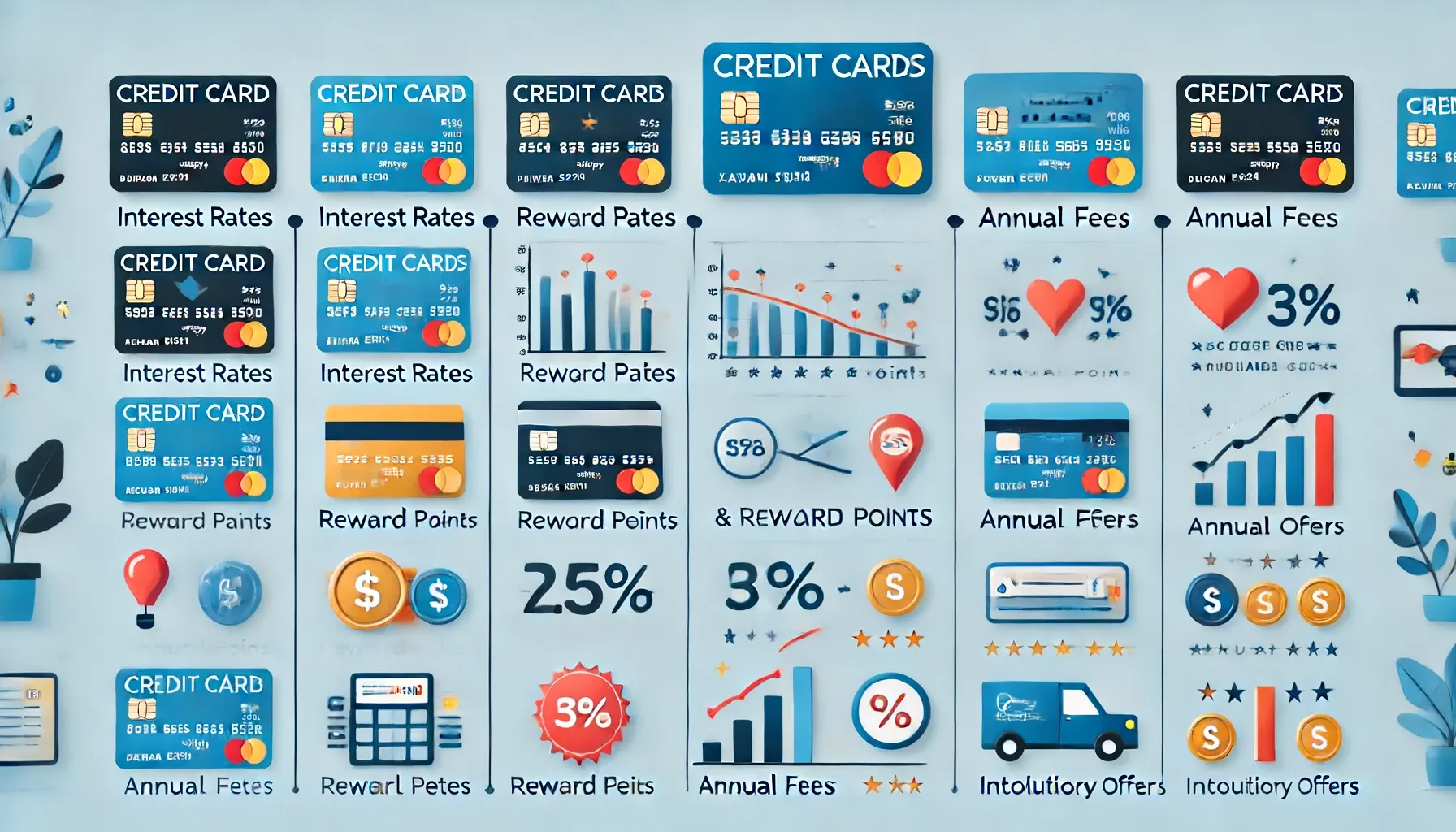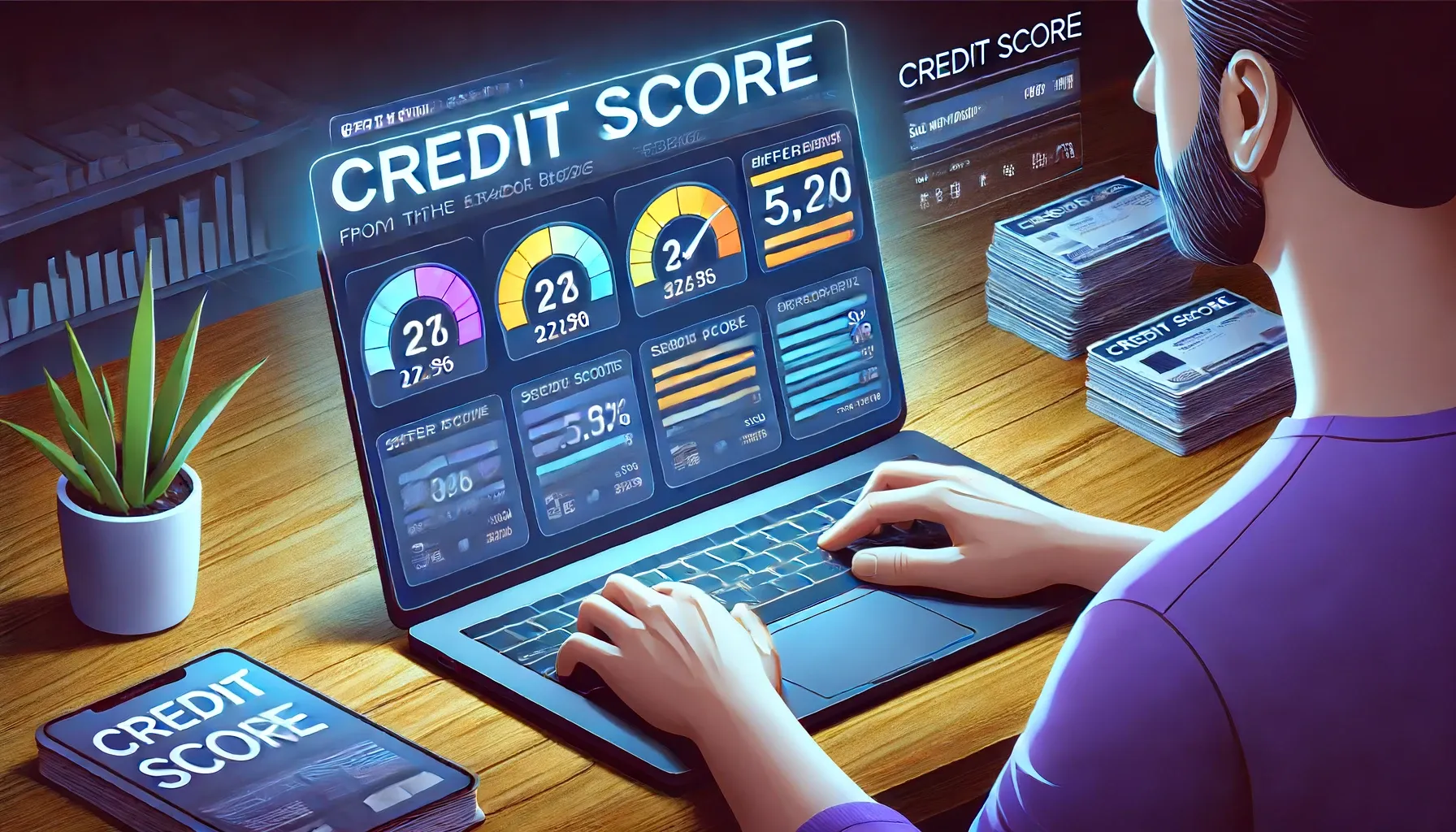How to Choose the Right Credit Card for Your Needs
Discover how to choose the right credit card for your needs with our comprehensive guide. Learn about different types of credit cards, key factors to consider, and get answers to common FAQs

Choosing the right credit card can be a daunting task given the myriad of options available today. From rewards cards to balance transfer cards, each type offers different benefits and is suited to various financial situations. This guide aims to help you navigate through the options and find the credit card that best meets your needs.
Understanding Your Financial Situation
Before diving into the specifics of different credit card types, it's crucial to understand your own financial situation. This includes knowing your credit score, understanding your spending habits, and being clear about what you want from a credit card.
Assess Your Credit Score
Your credit score plays a significant role in determining which credit cards you can qualify for. Higher credit scores often open the door to cards with better rewards and lower interest rates. Check your credit score through one of the major credit bureaus—Equifax, Experian, or TransUnion.
Analyze Your Spending Habits
Look at your spending patterns over the past few months. Are you spending more on groceries, travel, dining, or something else? Identifying these trends can help you choose a card that offers the best rewards for your lifestyle.
Define Your Goals
What are you hoping to achieve with a new credit card? Are you looking to earn rewards, save on interest, or build credit? Your goals will guide your choice.

Types of Credit Cards
There are several types of credit cards, each designed for different financial needs and spending habits.
Rewards Credit Cards
Rewards credit cards offer points, miles, or cash back on your purchases. These rewards can be redeemed for various benefits, including travel, merchandise, or statement credits.
Cashback Credit Cards
Cashback credit cards give you a percentage of your spending back as cash rewards. This type of card is ideal for those who want straightforward, tangible rewards.
Travel Credit Cards
Travel credit cards are tailored for frequent travelers. They offer rewards in the form of miles or points that can be redeemed for flights, hotel stays, and other travel-related expenses. These cards often come with travel perks like free checked bags and priority boarding.
Balance Transfer Credit Cards
Balance transfer credit cards allow you to transfer existing high-interest debt to a new card with a lower interest rate, often with an introductory 0% APR period. This can help you save money on interest and pay off debt faster.
Low-Interest Credit Cards
Low-interest credit cards offer a lower annual percentage rate (APR), making them ideal for those who may carry a balance from month to month.
Secured Credit Cards
Secured credit cards require a cash deposit as collateral, which serves as your credit limit. These cards are designed for individuals looking to build or rebuild their credit.
Key Factors to Consider
When choosing a credit card, several factors should influence your decision. Here are the key aspects to consider:
Interest Rates
The interest rate, or APR, determines how much you’ll pay if you carry a balance on your card. Look for cards with lower interest rates if you plan to carry a balance.
Annual Fees
Some credit cards charge an annual fee. Make sure the rewards and benefits you receive outweigh this cost.
Credit Limit
Your credit limit is the maximum amount you can charge to your card. Ensure the limit is high enough to meet your needs but low enough to help you manage your spending.
Rewards and Benefits
Consider the type of rewards and benefits the card offers. Choose a card that provides rewards that align with your spending habits and goals.
Foreign Transaction Fees
If you travel internationally, look for a card with no foreign transaction fees to save money on purchases made abroad.
Introductory Offers
Many credit cards offer introductory bonuses, such as 0% APR for a certain period or a large amount of points for spending a specific amount within the first few months. These can provide significant value if used wisely.

Steps to Choose the Right Credit Card
Assess Your Credit Score
Check your credit score to determine which cards you might qualify for. Higher scores will give you access to cards with better rewards and lower interest rates.
Determine Your Spending Habits
Analyze your spending habits to identify which type of rewards will benefit you the most. For example, if you spend a lot on dining out, a card that offers high rewards for restaurant purchases would be ideal.
Compare Credit Card Offers
Use comparison tools and reviews to evaluate different credit card offers. Look at the rewards, interest rates, fees, and other benefits.
Read the Fine Print
Always read the terms and conditions before applying for a credit card. Make sure you understand the fees, interest rates, and rewards program details.
Check for Additional Features
Some cards offer additional features such as purchase protection, extended warranties, and travel insurance. These can add significant value to your card.

FAQs
- What is a good credit score to apply for a credit card?
A credit score above 700 is considered good and will qualify you for most credit cards. Scores above 750 are excellent and will give you access to the best offers.
- Can I apply for a credit card with bad credit?
Yes, you can apply for a secured credit card, which is designed for individuals with bad or no credit. These cards require a cash deposit that serves as your credit limit.
- How can I improve my chances of getting approved for a credit card?
Improve your credit score by paying bills on time, reducing your debt, and checking your credit report for errors. Applying for cards within your credit score range will also increase your chances.
- What are balance transfer credit cards?
Balance transfer credit cards allow you to transfer high-interest debt from one or more credit cards to a new card with a lower interest rate, often with an introductory 0% APR period.
- How do travel credit cards work?
Travel credit cards offer rewards in the form of miles or points that can be redeemed for travel-related expenses. They often come with additional travel perks like free checked bags, airport lounge access, and travel insurance.
- Are there any downsides to credit cards with annual fees?
While annual fees can be a downside, the rewards and benefits offered by these cards can outweigh the cost. Make sure to calculate if the rewards justify the fee.
Conclusion
Choosing the right credit card requires understanding your financial situation, assessing your spending habits, and carefully comparing the options available. By considering factors like interest rates, fees, rewards, and benefits, you can find a card that aligns with your financial goals and helps you make the most of your spending.





